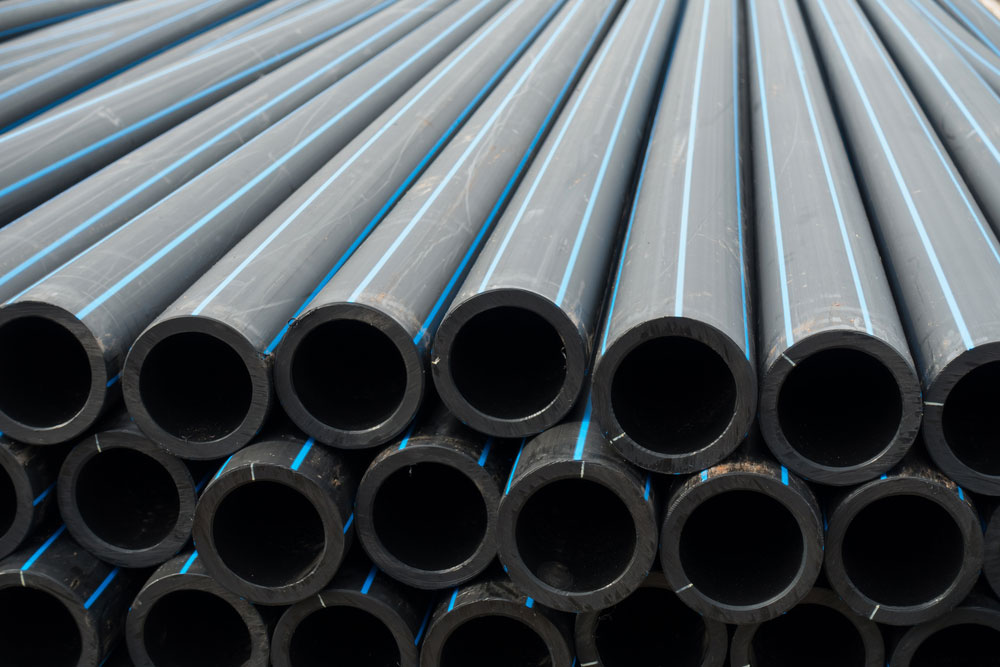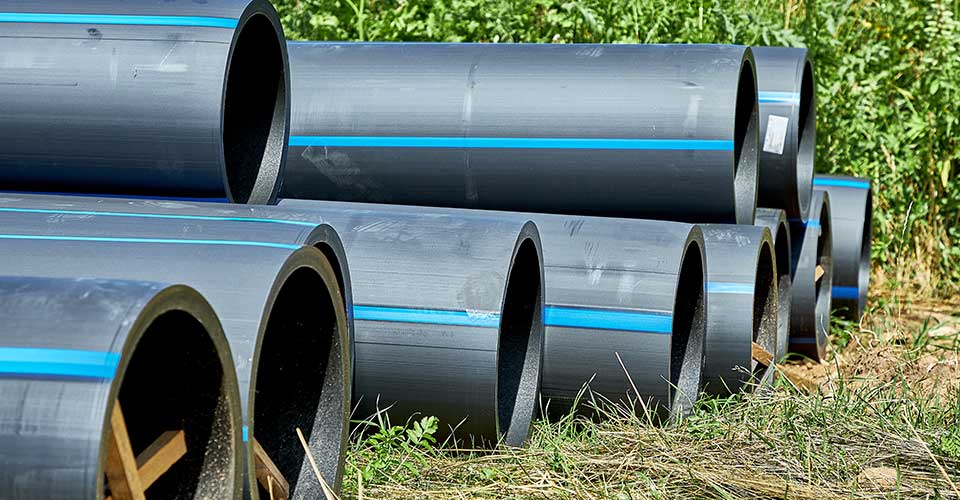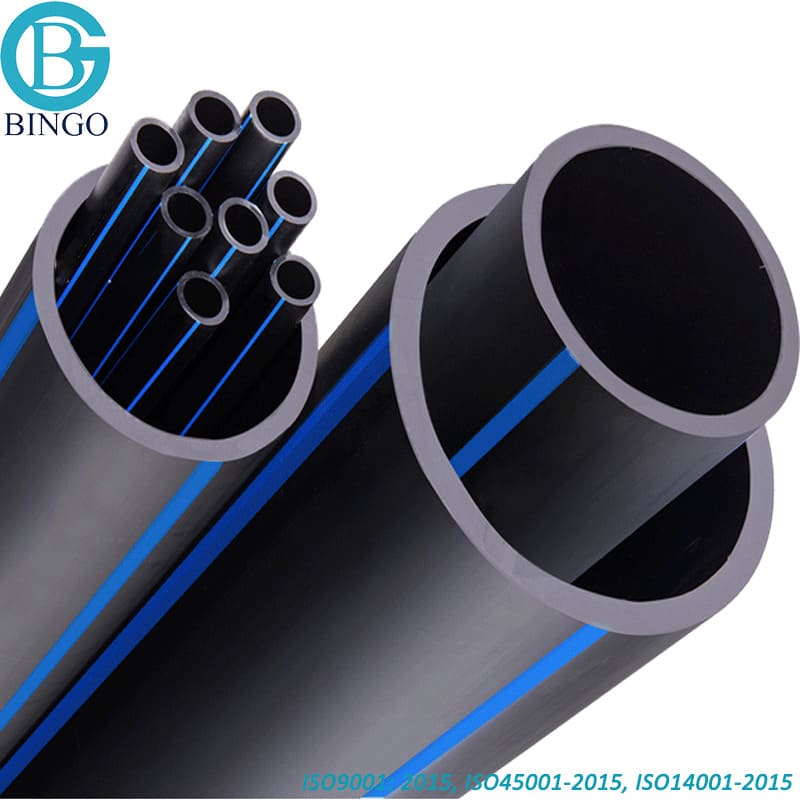Checking Out the Leading Pipeline Manufacturers: Top Quality, Reliability, and Development
The pipeline manufacturing sector stands at the junction of development, top quality, and reliability, driven by leading companies such as Tenaris and Vallourec. These makers are not just committed to creating high-performance materials but are likewise introducing sustainable methods that address modern ecological problems (Pipeline Manufacturer). As we examine the criteria that specify quality in pipeline services, it ends up being noticeable that the landscape is quickly advancing. What details technologies are emerging, and how are these developments forming the future of pipeline facilities? The responses may redefine industry requirements in methods that are not yet totally comprehended
Leading Manufacturers Overview
In the domain of pipeline manufacturing, several key gamers arise as leaders, each contributing substantially to the sector's landscape. Firms such as Tenaris, Vallourec, and JFE Steel have actually established themselves as frontrunners by constantly delivering high-grade items that satisfy rigid sector requirements. Tenaris, renowned for its innovative solutions, specializes in seamless and welded pipes, catering primarily to the oil and gas field. Vallourec, a French multinational, focuses on the production of costs tubular remedies, highlighting sustainability and progressed innovation in its manufacturing procedures.
JFE Steel, a major Japanese manufacturer, is acknowledged for its comprehensive variety of steel pipelines, specifically those utilized in energy and framework tasks. Their commitment to r & d has actually enabled them to generate high-performance products that endure harsh environmental problems. Additionally, firms like united state Steel and National Oilwell Varco have actually expanded their market presence by diversifying their product offerings and enhancing operational performances.
These leading suppliers not just dominate the market yet also drive technology within the sector, establishing benchmarks for quality and reliability that players desire accomplish. Their contributions are important for fulfilling the increasing demand for efficient and long lasting pipeline remedies worldwide.
Requirements for Top Quality Assessment
Quality evaluation in pipeline manufacturing rests on 2 crucial criteria: material sturdiness requirements and making procedure performance. Making certain that products satisfy extensive durability criteria is essential for the long life and reliability of pipelines. Furthermore, enhancing the manufacturing process can enhance performance while keeping high top quality, eventually impacting overall performance and security.
Material Longevity Standards
Guaranteeing the longevity and reliability of pipeline products is essential for maintaining infrastructure integrity and functional performance. Product sturdiness requirements play a crucial function in examining the high quality of pipelines, dictating the performance and lifespan of the products utilized in construction. Manufacturers have to follow a range of extensive standards, including those established by organizations such as ASTM International and the American Oil Institute (API)
These standards examine various variables, including deterioration resistance, tensile toughness, and tiredness performance. For example, pipes made use of in harsh atmospheres call for materials that can hold up against chemical deterioration, while those subjected to high-pressure problems should show phenomenal tensile strength.
In addition, factors such as temperature changes and ecological conditions need to be considered, as these can significantly influence material habits gradually. Manufacturers commonly make use of sophisticated testing techniques, consisting of accelerated aging examinations, to simulate long-lasting wear and guarantee that materials go beyond or meet market standards.
Manufacturing Process Performance
Manufacturers' capacity to enhance making process effectiveness is vital for creating premium pipes that meet strict industry criteria. Performance in making straight influences cost management, production timelines, and total item stability. To achieve this, leading pipeline suppliers apply advanced techniques such as lean manufacturing, automation, and real-time information analytics.
Lean manufacturing principles are crucial in decreasing waste and taking full advantage of resource utilization. By streamlining procedures and eliminating redundancies, producers can improve performance while making certain regular quality. Automation innovations, including robotics and computer system mathematical control (CNC) makers, play a pivotal duty in improving precision and reducing human error, thereby elevating the integrity of the end product.
In addition, using real-time data analytics permits manufacturers to keep track of production processes continuously, enabling them to determine traffic jams and make timely adjustments. This proactive approach not only boosts efficiency however likewise sustains quality assurance protocols by guaranteeing compliance with governing criteria.
Dependability in Pipeline Solutions
Dependability in pipeline services is critical, as it straight influences the security and efficiency of fluid transport systems. Trick aspects include the toughness of materials made use of, adherence to strenuous testing and accreditation requirements, and the unification of innovative product solutions that enhance efficiency. Recognizing these aspects is essential for suppliers aiming to supply reputable pipeline infrastructure.
Significance of Longevity
Accomplishing sturdiness in pipeline remedies is essential, as it straight impacts the long-lasting performance and security of infrastructure. Long lasting pipelines are essential for lessening upkeep prices and decreasing the likelihood of devastating failings. This integrity is particularly vital in sectors such as oil and gas, supply of water, and wastewater management, where the consequences of pipeline failing can be extreme, both economically and ecologically.
The products and producing processes employed by pipeline manufacturers play a significant duty in establishing the toughness of the last item. Using top quality resources, progressed modern technologies, and ingenious style concepts assures that pipes can endure different stress factors, consisting of stress fluctuations, temperature variants, and corrosive environments.
The toughness of pipes is closely connected to their ability to withstand outside factors such as dirt motion, seismic task, and chemical exposures. Reliable deterioration defense methods, such as finishings and cathodic defense, additionally improve the long life of pipes, protecting them versus wear and tear in time.
Purchasing resilient pipeline services ultimately equates to enhanced operational performance, lowered downtime, and improved security, affirming the critical relevance of sturdiness in modern-day pipeline manufacturing.
Examining and Certification Criteria
In the domain name of pipeline remedies, strenuous testing and certification standards are important to ensure the dependability and safety of facilities. These standards serve as criteria for reviewing the efficiency and sturdiness of pipeline products and systems, confirming they meet particular regulative and market demands.
Evaluating processes typically include various methods, including stress screening, hydrostatic assessments, and non-destructive screening techniques. These evaluations are important for determining prospective weaknesses or flaws in the materials before they are released in real-world applications. Additionally, accreditation by acknowledged companies guarantees that makers comply with established guidelines, which cultivates trust among stakeholders, including engineers, professionals, and end-users.
Lots of top pipeline makers participate in constant surveillance and enhancement of their screening methods to adjust to evolving sector requirements and technical innovations. Conformity with standards such as ASTM, ASME, and ISO not only improves item integrity however additionally minimizes the risk of ecological events connected with pipeline published here failures.
Innovative Product Solutions
The development of innovative material solutions has actually transformed the landscape of pipeline manufacturing, boosting both efficiency and resilience. Advanced products such as high-density polyethylene (HDPE), cross-linked polyethylene (PEX), and composite materials have actually become game-changers, using premium resistance to rust, temperature level fluctuations, and pressure variants. These products not only expand the lifespan of pipelines but also reduce maintenance costs, guaranteeing dependable long-term efficiency.
Manufacturers are progressively adopting clever materials that incorporate sensing units for real-time monitoring. This innovation allows for aggressive upkeep, considerably improving dependability by detecting leakages or architectural weak points before they escalate right into important failures. The combination of nanotechnology has actually also led to the development of coverings that improve the resilience of pipelines versus abrasion and chemical direct exposure.
Sustainability is an additional essential emphasis, with makers checking out bio-based compounds and recyclable products that minimize environmental influence. As regulative criteria continue to advance, the emphasis on cutting-edge material options becomes vital in meeting rigorous safety and security and ecological needs. Inevitably, these advancements not only improve the reliability of pipeline systems yet additionally add to the overall efficiency and sustainability of energy transportation frameworks.
Technologies in Pipeline Innovation
Advancements in pipeline innovation are reinventing the sector by improving efficiency, safety and security, and environmental sustainability. Current improvements concentrate on smart pipeline systems that use sensors and IoT technology to keep an eye on problems in actual time, allowing proactive upkeep and reducing the threat of failures. These systems can identify leaks, stress modifications, and other abnormalities, enabling quick reaction and reducing environmental impact.
Additionally, the advancement of sophisticated materials, such as composite and corrosion-resistant alloys, considerably extends the life-span and integrity of pipes. Pipeline Manufacturer (American Plastics LLC HDPE Pipeline Manufacturer). These materials decrease maintenance expenses and boost performance in extreme environments, making them perfect for oil, water, and gas transport
Automation and robotics are playing an important function in pipeline building and evaluation. Drones and robot gadgets facilitate surveys and analyses of hard-to-reach locations, making certain detailed evaluations without compromising security.
Additionally, ingenious styles, such as modular pipeline systems, enable for better flexibility in setup and adjustment, accommodating the dynamic needs of the power industry. Together, these technical innovations not just enhance operational efficiency but additionally contribute to a much more lasting and durable pipeline infrastructure, leading the way for a greener future.
Study of Success
Across various markets, effective applications of advanced pipeline modern technologies show significant renovations in operational performance and safety. One remarkable instance is the deployment of wise pipeline tracking systems in the oil and gas industry, where real-time data analytics have minimized leak detection times by over 50%. This not only minimizes ecological threats but additionally boosts the overall stability of pipeline facilities.

Additionally, a major manufacturer carried out robot assessment innovations in its pipeline maintenance procedures, leading to a 40% improvement in evaluation efficiency. This strategy has structured maintenance timetables and significantly decreased downtime.
These case research studies highlight exactly how top pipeline makers are leveraging advanced technologies to foster reliability and functional excellence, ultimately setting new requirements for the market. As these successes remain to unfold, they lead the way for additional improvements in pipeline manufacturing and administration.

Environmental Sustainability Practices
Often, pipeline producers are prioritizing ecological sustainability methods to reduce their eco-friendly impact and boost the long life of their products. This commitment is mirrored in different campaigns targeted at lowering waste, conserving energy, and making use of sustainable products throughout the manufacturing process.

Several producers are embracing sophisticated innovations that decrease exhausts and energy consumption. For example, the integration of automated systems and energy-efficient machinery helps enhance production while decreasing dependence on nonrenewable fuel sources. Additionally, companies are increasingly turning to environment-friendly products, such as recycled steels and bioplastics, which not only minimize the ecological effect however additionally advertise a round economic situation.
Furthermore, pipeline suppliers are carrying out extensive lifecycle assessments to evaluate the ecological ramifications of their products from beginning to disposal. This approach allows them to identify possibilities for enhancement and foster responsible sourcing and waste monitoring practices.
Collaboration with ecological organizations better improves these efforts, as manufacturers look for to align their procedures with global sustainability objectives. Eventually, these ecological sustainability practices not only add to a healthier world yet likewise position producers as accountable leaders in the market, appealing to environmentally mindful stakeholders and consumers alike.
Future Trends in Pipeline Manufacturing
As the demand for a lot more lasting and effective infrastructure grows, pipeline manufacturing is poised for significant advancements that will certainly improve the sector. Trick trends expected in the coming years consist of the integration of sophisticated products, such as corrosion-resistant and composite alloys, which enhance durability while decreasing environmental effect. Manufacturers are additionally expected to embrace ingenious manufacturing techniques, like additive manufacturing and automation, to improve procedures, reduce waste, and reduced prices.
The surge of smart pipeline modern technologies, incorporating sensors and IoT gadgets, will certainly allow real-time tracking and anticipating upkeep, consequently boosting safety and security and functional performance. This electronic improvement will certainly not just enhance source monitoring yet additionally promote conformity with rigid environmental policies.
Sustainability will remain a central focus, driving manufacturers to buy environmentally friendly practices, including energy-efficient manufacturing approaches and recycling initiatives. As the global focus on environment modification intensifies, pipeline manufacturers will need to adapt by developing solutions that fulfill both financial and ecological demands.
Frequently Asked Inquiries

What Industries Mainly Utilize Pipeline Products From These Manufacturers?
Pipeline items are primarily made use of in industries such as oil and water, wastewater and gas administration, chemical mining, building and construction, and processing. These markets count on effective, durable, and safe transport of materials and fluids.
Exactly How Do Manufacturers Make Certain Conformity With International Pipeline Specifications?
Manufacturers guarantee conformity with international pipeline requirements by applying rigorous quality control processes, carrying out normal assessments, adhering to well-known regulatory frameworks, and buying worker training to advertise recognition and understanding of safety and quality needs.
What Is the Typical Life-span of Pipelines From Leading Manufacturers?
The average lifespan of pipelines from leading producers commonly varies from 30 to 100 years, depending on material, environmental conditions, and maintenance practices. American Plastics LLC HDPE Pipeline Manufacturer. Regular inspections and adherence to sector criteria considerably influence longevity and performance
Are There Certifications Certain to Pipeline Manufacturing Quality?
Yes, various qualifications exist for pipeline manufacturing quality, consisting of ISO 9001 for high quality administration systems and API standards details to pipes. These accreditations guarantee adherence to strenuous security, efficiency, and ecological standards within the sector.
Just How Do Manufacturers Deal With Pipeline Maintenance and Services?
Manufacturers normally execute a proactive upkeep approach that consists of routine examinations, keeping track of systems for early detection of problems, and a structured repair service method. This approach assurances pipeline integrity, reduces downtime, and enhances overall operational effectiveness.
Quality assessment in pipeline manufacturing hinges on two crucial standards: product toughness standards and making process performance - Pipeline Manufacturer. Product durability criteria play an essential duty in assessing the top quality of pipes, determining the performance and life expectancy of the products used in building. The products and manufacturing processes used by pipeline manufacturers play a considerable duty in determining the toughness of the final product. The typical life-span of pipelines from leading producers commonly ranges from 30 to 100 years, depending on material, ecological conditions, and maintenance practices. Yes, various accreditations exist for pipeline making top quality, consisting of ISO 9001 for high quality management systems and API standards particular to pipes